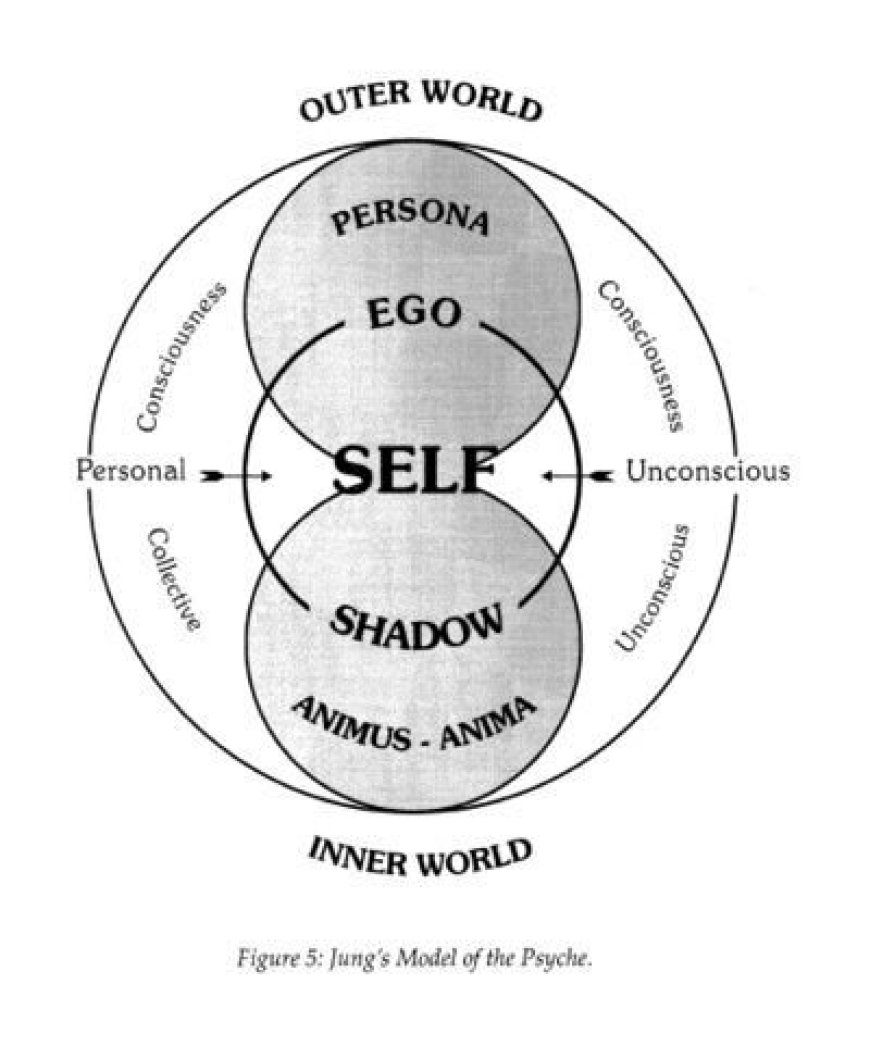Individuation: Carl Jung’s Path to Wholeness and Self-Discovery
Individuation: Carl Jung’s Path to Wholeness and Self-Discovery" explores Jung's transformative concept of individuation, a journey of integrating the unconscious with the conscious mind. This process leads to self-realization and personal wholeness by reconciling opposing forces within the psyche, such as the persona, shadow, and anima/animus. Discover how Jung's philosophy helps individuals achieve balance and deeper self-awareness through the integration of their inner worlds.

Carl Jung's Concept of Individuation: A Path to Self-Realization
Carl Jung, the Swiss psychiatrist and psychoanalyst, introduced the concept of individuation as a cornerstone of his analytical psychology. Individuation refers to the process of becoming a fully realized individual, integrating all aspects of the psyche into a harmonious whole. It is not merely about personal growth but involves embracing the unique, authentic self through self-awareness and the reconciliation of conscious and unconscious elements.
Understanding Individuation
Individuation is deeply tied to Jung's idea of the self, which represents the totality of the psyche, encompassing both the conscious ego and the unconscious. Unlike Freud, who emphasized the conflict between the id and the superego, Jung believed that the psyche seeks equilibrium. Individuation serves as the process of achieving this balance by integrating the persona, shadow, anima/animus, and other archetypal forces.
-
Persona: This is the social mask we wear to navigate the world. Individuation requires acknowledging and detaching from the persona to connect with a deeper, truer self.
-
Shadow: Representing the darker, hidden aspects of the psyche, the shadow must be confronted and integrated during individuation.
-
Anima/Animus: These are the inner, contrasexual aspects of the psyche (the anima in men and the animus in women). Understanding and harmonizing these aspects fosters psychological wholeness.
The Stages of Individuation
-
Confronting the Shadow
The first major step in individuation is recognizing and integrating the shadow. This involves facing repressed desires, fears, and emotions that conflict with our conscious self-image. By owning these aspects, individuals diminish their influence and grow in self-awareness. -
Integrating the Anima/Animus
Developing a healthy relationship with one's anima or animus leads to a deeper understanding of oneself and others. This process reduces internal conflict and promotes empathy and emotional balance. -
Unifying the Self
The ultimate aim of individuation is to establish the self as the central guiding principle of the psyche, transcending the ego's limitations. This state fosters a profound sense of inner peace and authenticity.
Individuation and the Collective Unconscious
Jung emphasized that individuation is not a solitary journey but is influenced by the collective unconscious, a shared reservoir of archetypes and symbols. The individual's growth contributes to the broader evolution of humanity by enriching this collective heritage. Dreams, myths, and creative expressions often provide insights that guide the process.
Challenges and Rewards
Individuation can be challenging, as it demands confronting uncomfortable truths and letting go of societal expectations. However, the rewards are profound. By achieving individuation, individuals experience:
-
A sense of wholeness and authenticity.
-
Greater psychological balance and resilience.
-
Deeper connections with others and the world.
-
Fulfillment of their unique potential.
Carl Jung's concept of individuation offers a transformative framework for self-realization. It encourages individuals to embark on a journey inward, confronting their fears, embracing their strengths, and harmonizing their inner world. In doing so, they move closer to becoming the person they are truly meant to be—fully themselves, yet deeply connected to humanity.
Individuation remains a timeless and profound insight into human psychology, inspiring countless seekers of self-understanding and growth.



 Utej
Utej 





